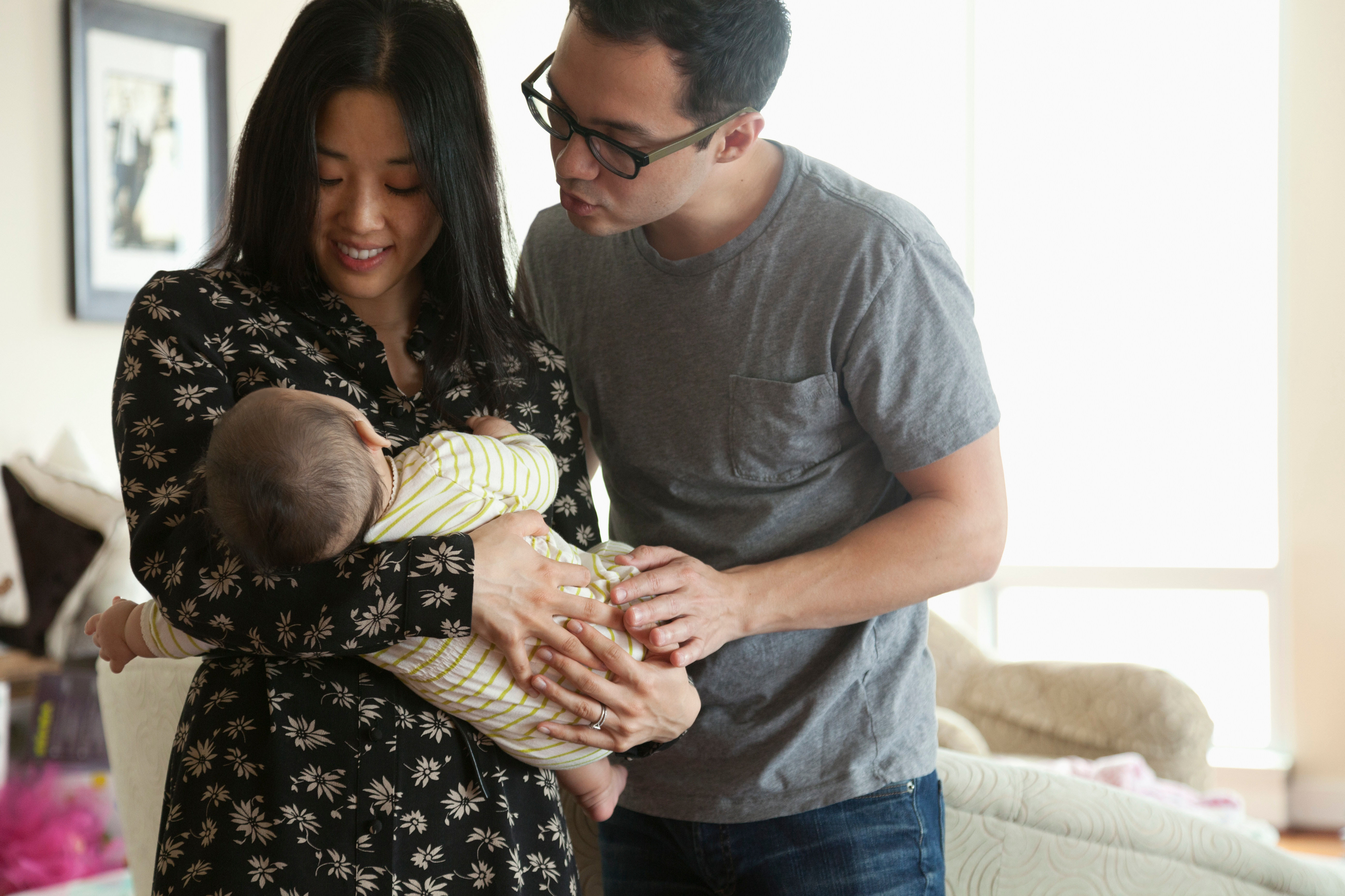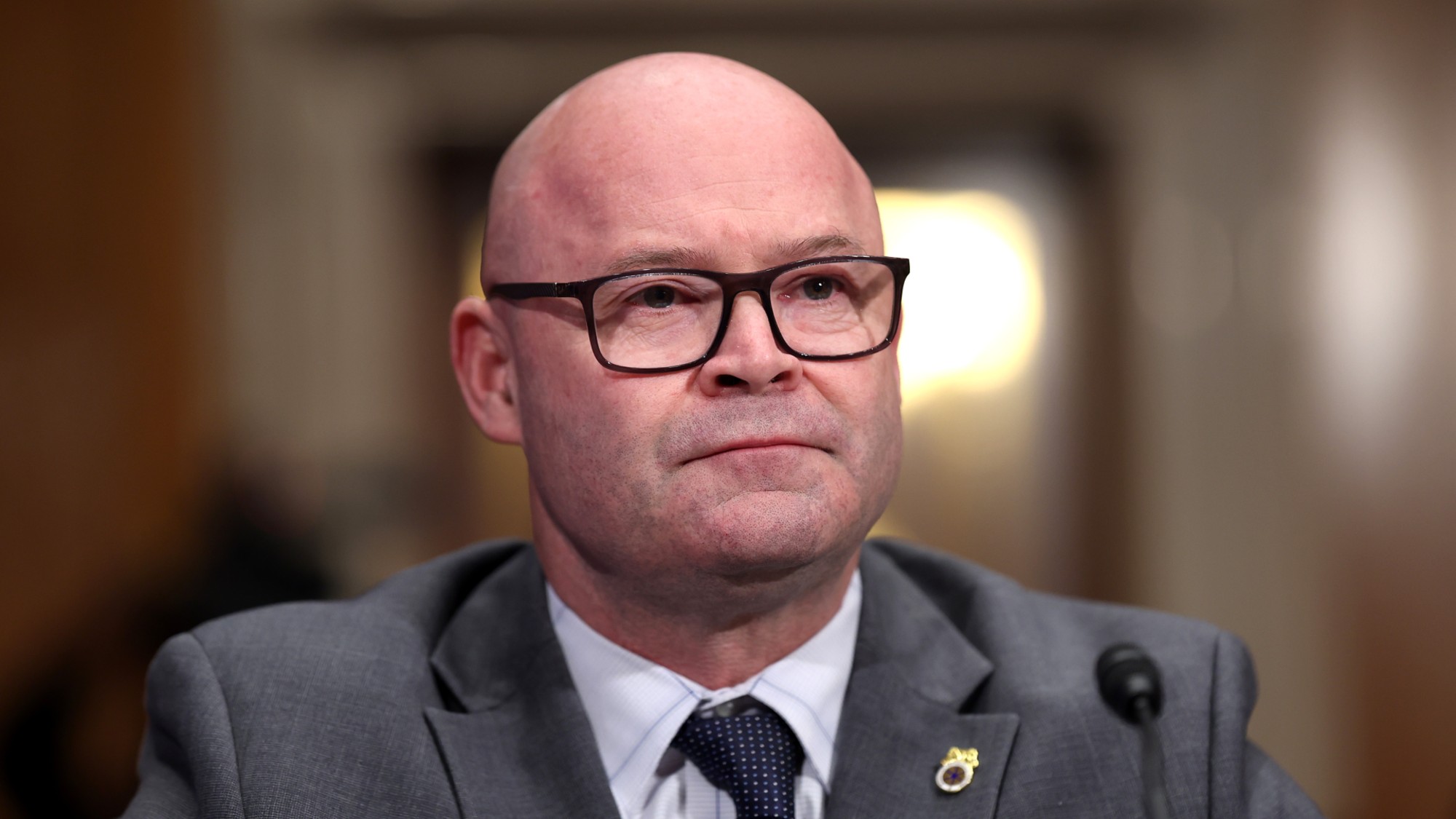The dark side of paid parental leave
Paid parental leave isn't an unadulterated good. There's a real downside.


Democrats, progressives, and even some reform-minded conservatives have slammed President Trump's new budget as a cruel, math-challenged non-starter. But that doesn't mean they can't praise the odd, non-terrible, non-embarrassing parts.
For instance: Trump is the first Republican president to offer a national paid leave plan, a result of daughter Ivanka's insistence. Now, no one is going to accuse the president of mindlessly or gleefully copying what other advanced economies do for families. In Sweden, for example, parents get up to 16 months of paid leave, with moms and dads each required to take at least three months off.
The Trump proposal is far more modest. With a price tag of $25 billion over a decade, Trump's plan gives moms and dads six weeks of paid leave after the birth or adoption of a child. The program would funnel the benefits to about 1.3 million parents annually through the unemployment insurance system.
The Week
Escape your echo chamber. Get the facts behind the news, plus analysis from multiple perspectives.

Sign up for The Week's Free Newsletters
From our morning news briefing to a weekly Good News Newsletter, get the best of The Week delivered directly to your inbox.
From our morning news briefing to a weekly Good News Newsletter, get the best of The Week delivered directly to your inbox.
While this is vastly more generous than the zero weeks of paid leave American moms and dads get under current law, it's still not some lavish universal system. Actually, it's so skimpy, say paid leave advocates, that it is barely better than nothing.
And yet ... how could the left not be secretly thrilled? Even if Trump's bare-bones plan doesn't become law, it sets a sort of precedent for Republicans supporting paid leave. And should the plan pass Congress and get signed by Trump, it establishes a program that future Democratic presidents and lawmakers can expand.
But how much thought has been given to the inescapable tradeoffs from establishing a national paid leave plan? Certainly Trump's Council of Economic Advisers haven't offered any insights to Ivanka or her dad, because the CEA positions have yet to be filled. But if they were, the economists there would probably tell Team Trump plenty of things they don't want to hear about this big idea.
You see, conservative economics isn't really about balancing budgets or cutting taxes or deregulation. It's more about acknowledging policy tradeoffs. Even the best ideas have downsides, and it's up to policymakers to deal with them. Paid leave is no different.
A free daily email with the biggest news stories of the day – and the best features from TheWeek.com
A 2017 study, by UC Santa Barbara economist Jenna Stearns, of maternity leave policy in Great Britain found that access increases the probability of women returning to work, while job protection benefits result in higher overall maternal employment rates and longer job tenure. Sounds good! But there's a tradeoff: Expanding job protected leave benefits led to "fewer women holding management positions and other jobs with the potential for promotion."
Likewise, a 2013 study by Cornell University's Francine Blau and Lawrence Kahn found family-friendly policies indeed make it easier to balance work and family. But they also "leave women less likely to be considered for high-level positions. One's evaluation of such policies must take both of these effects into account."
Few economists would be surprised at these analyses. In a classic 1983 paper on mandated benefits like paid leave, former Obama economist Lawrence Summers explained businesses would offset higher benefits with lower pay or hiring workers with lower potential benefit costs. You know, tradeoffs.
Paid parental leave obviously has real upsides. But we can't ignore the downsides either: Lower pay, stingier promotions, and a potential employer favoritism toward the childless.
The key question is this: How can we provide parental leave in a way that minimizes such trade-offs and avoids creating a politically driven, one-size-fits-all policy that blankets America's huge and diverse labor market? One idea is to create personal savings accounts to deposit pre-tax dollars to replace or supplement income under the existing Family and Medical Leave Act (which gives up to 12 weeks of unpaid leave). Government could contribute funds for lower-income Americans or lend funds to richer folks if significant savings haven't yet accumulated. This approach would let workers express their preference, for instance, on how to value current wages versus future benefits.
If the Trumps are going to push the GOP toward paid leave, this may be a better policy approach — and even one the Paul Ryan Republicans on Capitol Hill might embrace.
James Pethokoukis is the DeWitt Wallace Fellow at the American Enterprise Institute where he runs the AEIdeas blog. He has also written for The New York Times, National Review, Commentary, The Weekly Standard, and other places.
-
 Critics’ choice: Watering holes for gourmands
Critics’ choice: Watering holes for gourmandsFeature An endless selection of Mexican spirits, a Dublin-inspired bar, and an upscale Baltimore pub
-
 Argentinian beef is at the center of American farmers’ woes
Argentinian beef is at the center of American farmers’ woesThe Explainer ‘It feels like a slap in the face to rural America,’ said one farmer
-
 ‘Businesses that lose money and are uncompetitive won’t survive’
‘Businesses that lose money and are uncompetitive won’t survive’Instant Opinion Opinion, comment and editorials of the day
-
 Millions turn out for anti-Trump ‘No Kings’ rallies
Millions turn out for anti-Trump ‘No Kings’ ralliesSpeed Read An estimated 7 million people participated, 2 million more than at the first ‘No Kings’ protest in June
-
 Ghislaine Maxwell: angling for a Trump pardon
Ghislaine Maxwell: angling for a Trump pardonTalking Point Convicted sex trafficker's testimony could shed new light on president's links to Jeffrey Epstein
-
 The last words and final moments of 40 presidents
The last words and final moments of 40 presidentsThe Explainer Some are eloquent quotes worthy of the holders of the highest office in the nation, and others... aren't
-
 The JFK files: the truth at last?
The JFK files: the truth at last?In The Spotlight More than 64,000 previously classified documents relating the 1963 assassination of John F. Kennedy have been released by the Trump administration
-
 'Seriously, not literally': how should the world take Donald Trump?
'Seriously, not literally': how should the world take Donald Trump?Today's big question White House rhetoric and reality look likely to become increasingly blurred
-
 Will Trump's 'madman' strategy pay off?
Will Trump's 'madman' strategy pay off?Today's Big Question Incoming US president likes to seem unpredictable but, this time round, world leaders could be wise to his playbook
-
 Democrats vs. Republicans: who are US billionaires backing?
Democrats vs. Republicans: who are US billionaires backing?The Explainer Younger tech titans join 'boys' club throwing money and support' behind President Trump, while older plutocrats quietly rebuke new administration
-
 US election: where things stand with one week to go
US election: where things stand with one week to goThe Explainer Harris' lead in the polls has been narrowing in Trump's favour, but her campaign remains 'cautiously optimistic'
